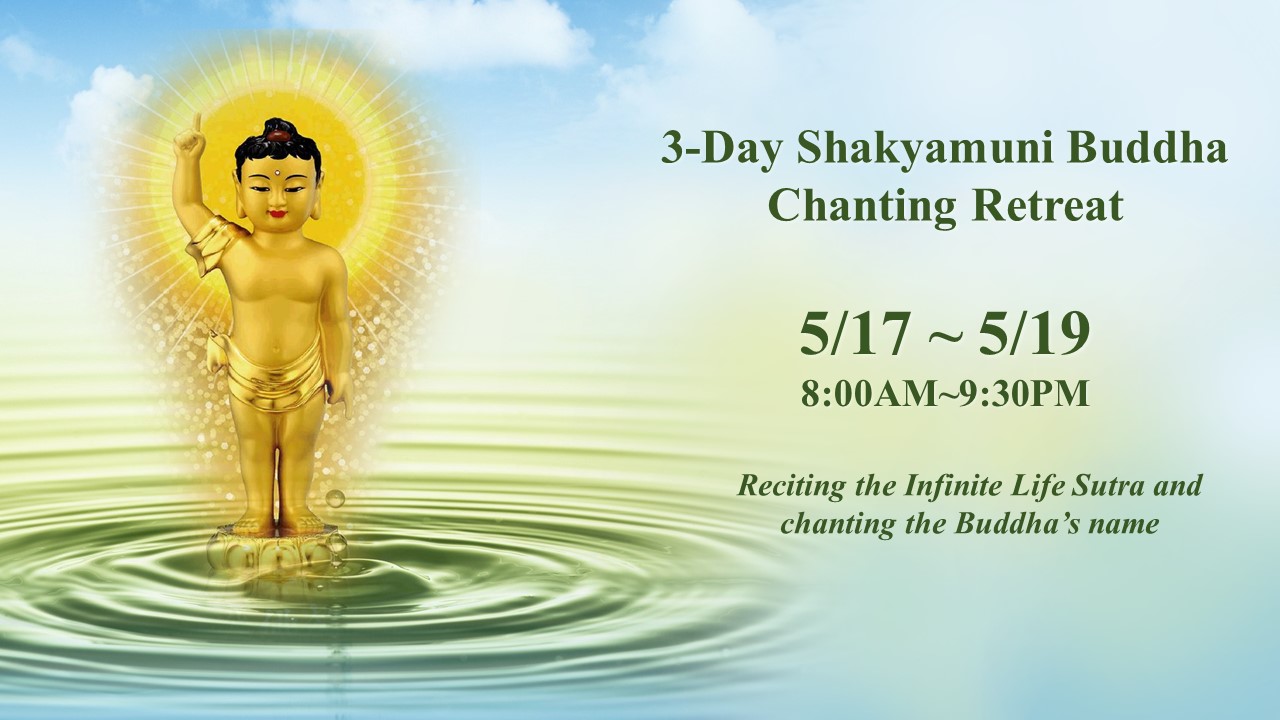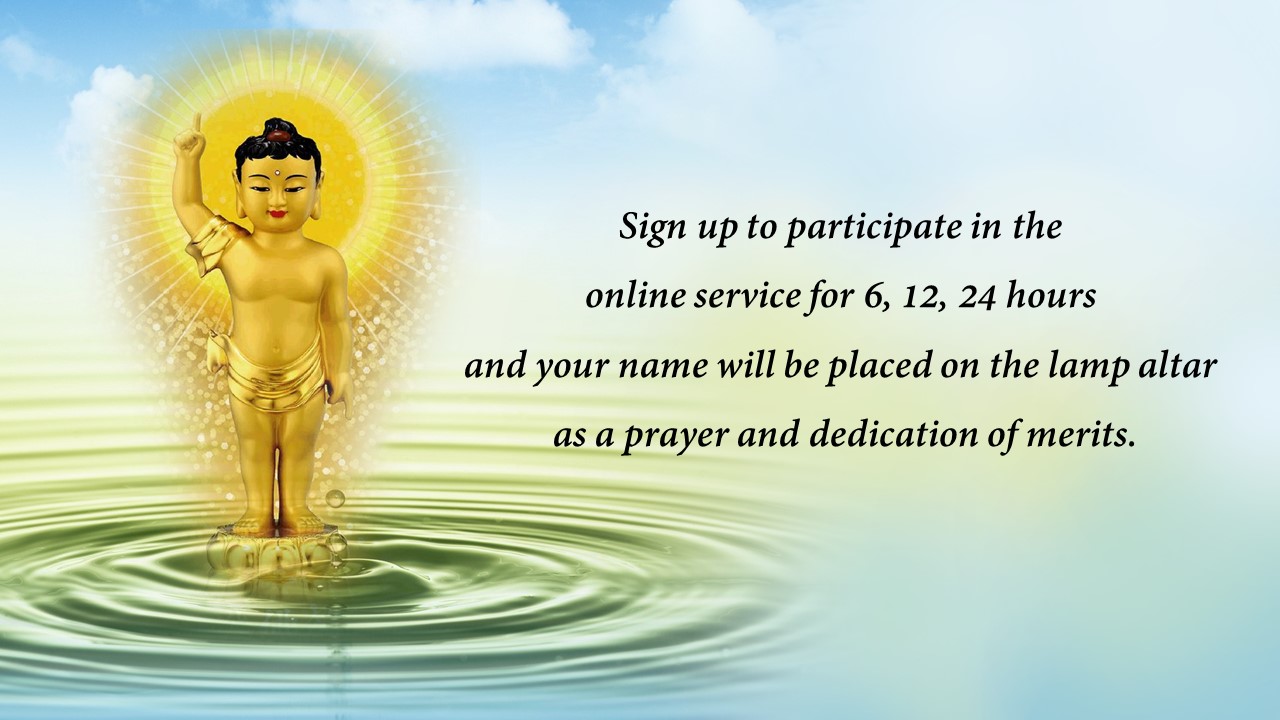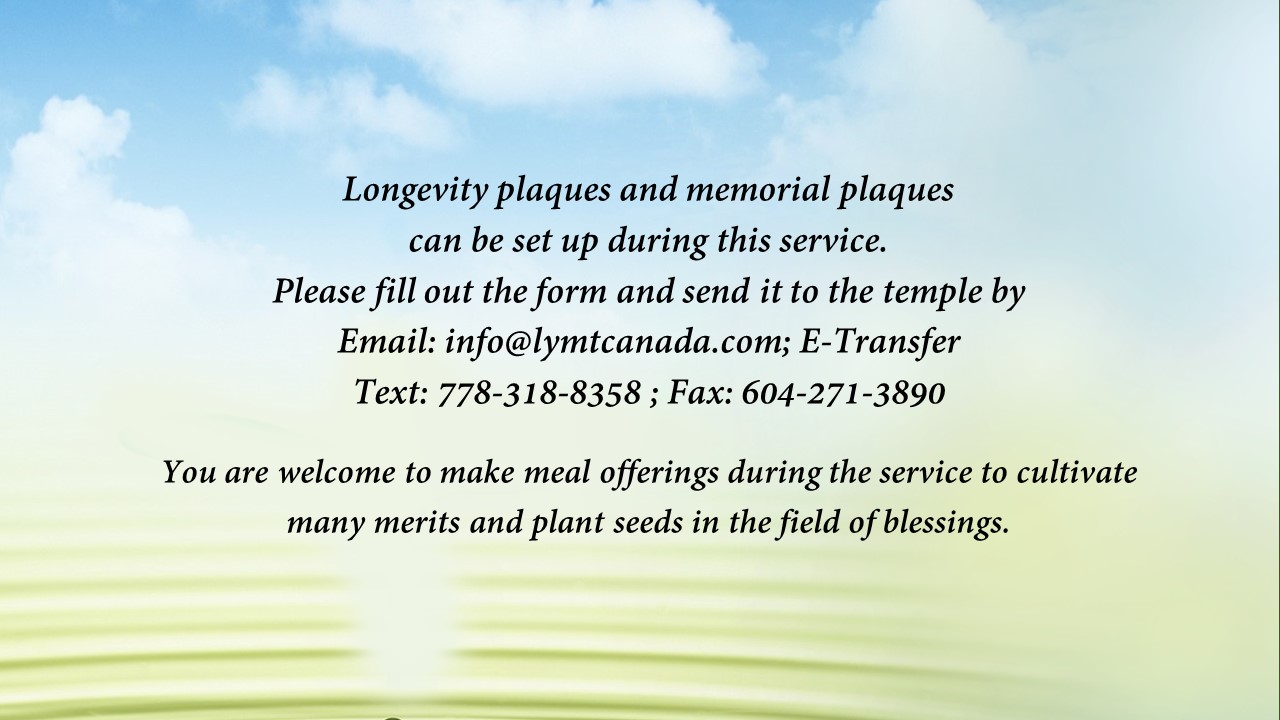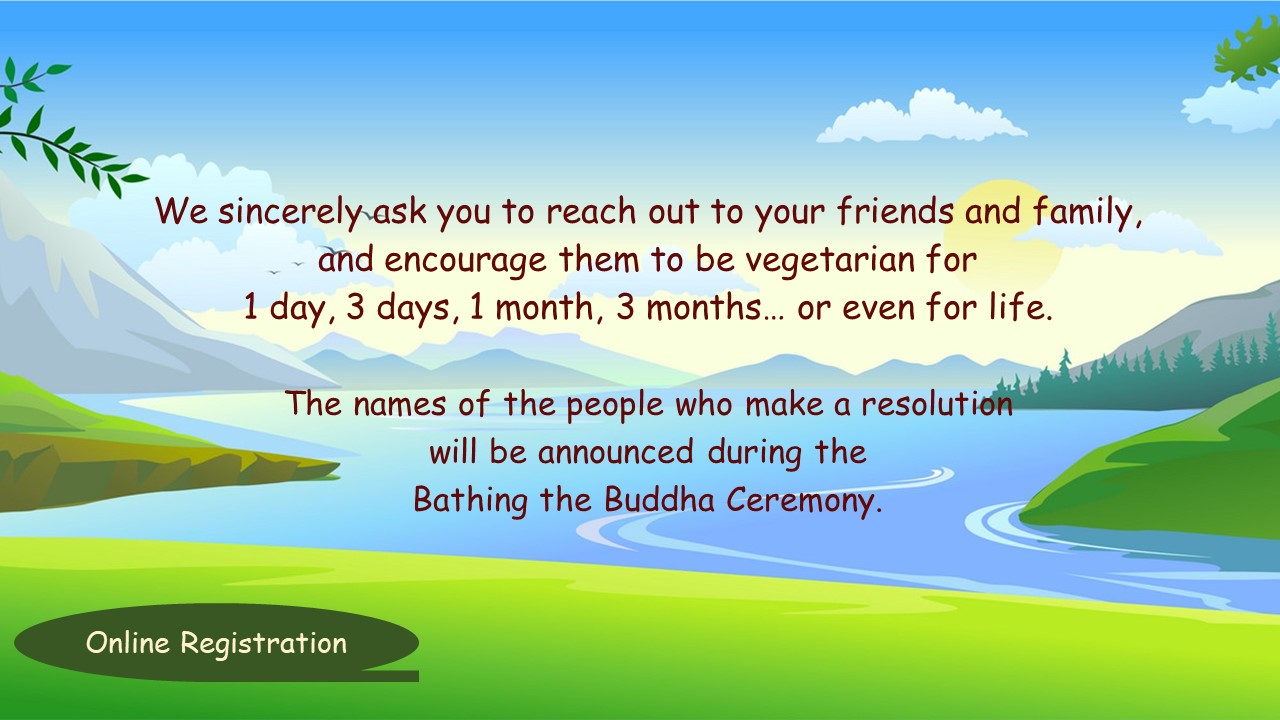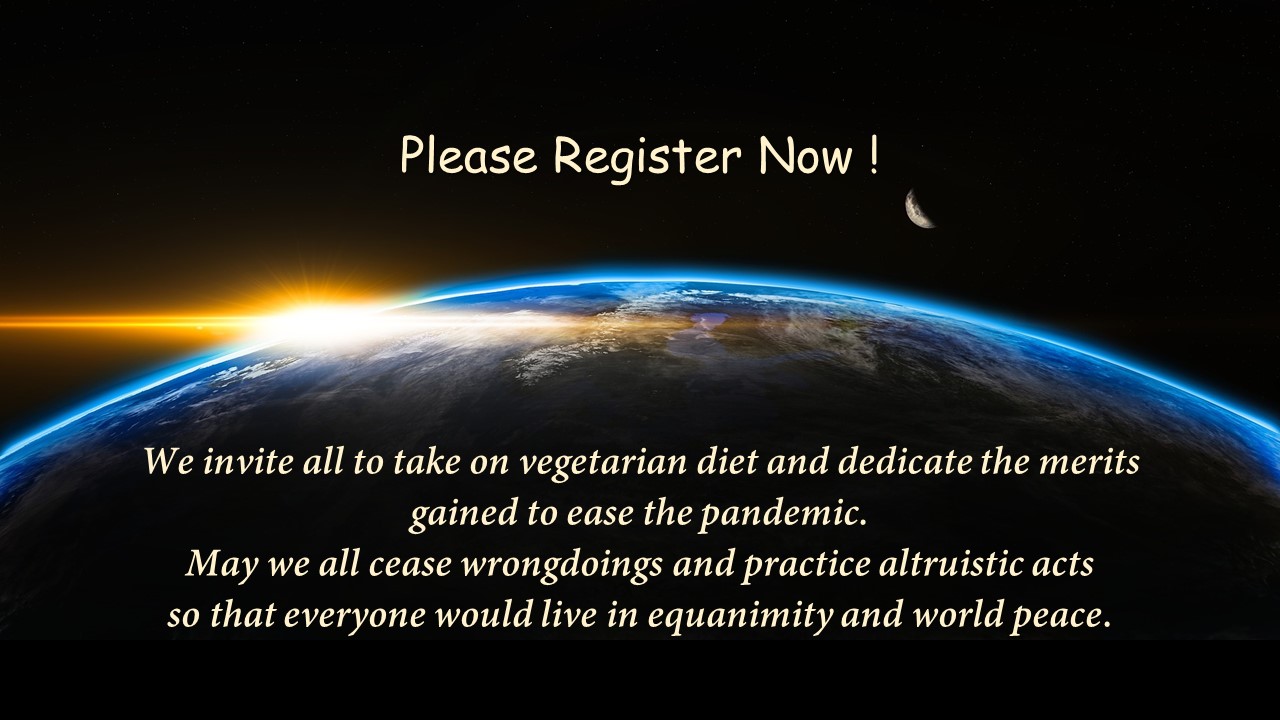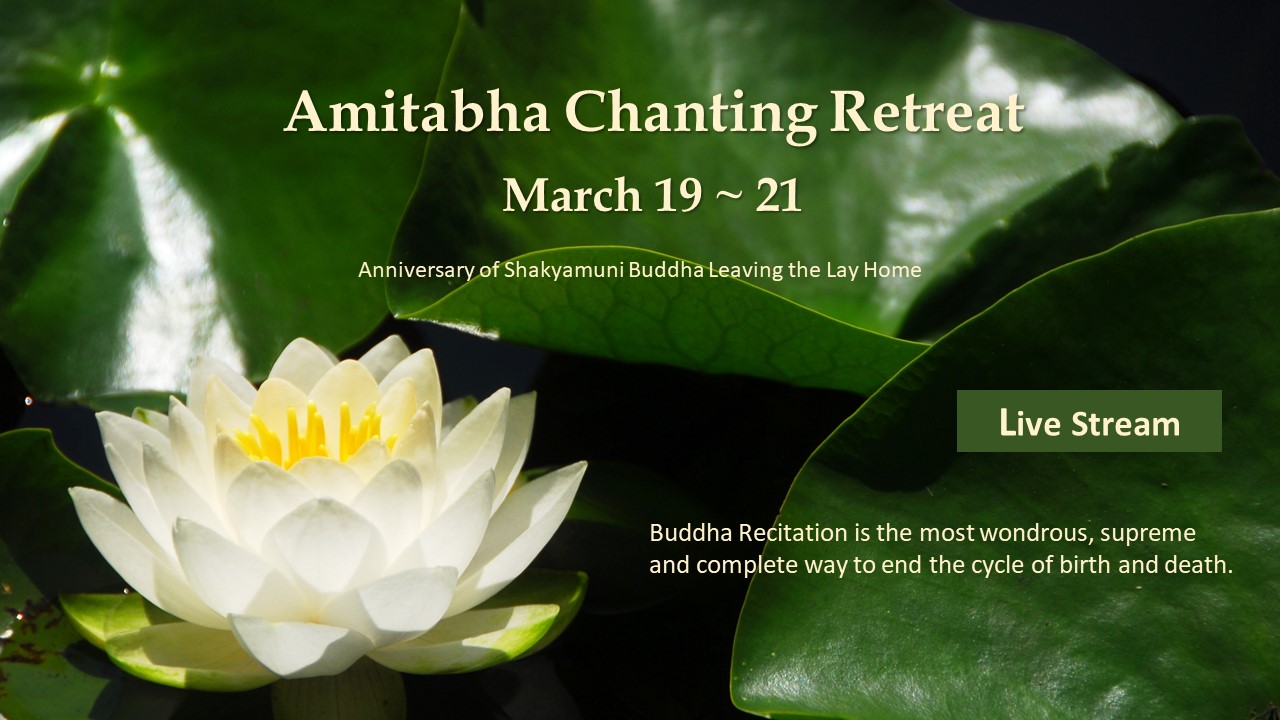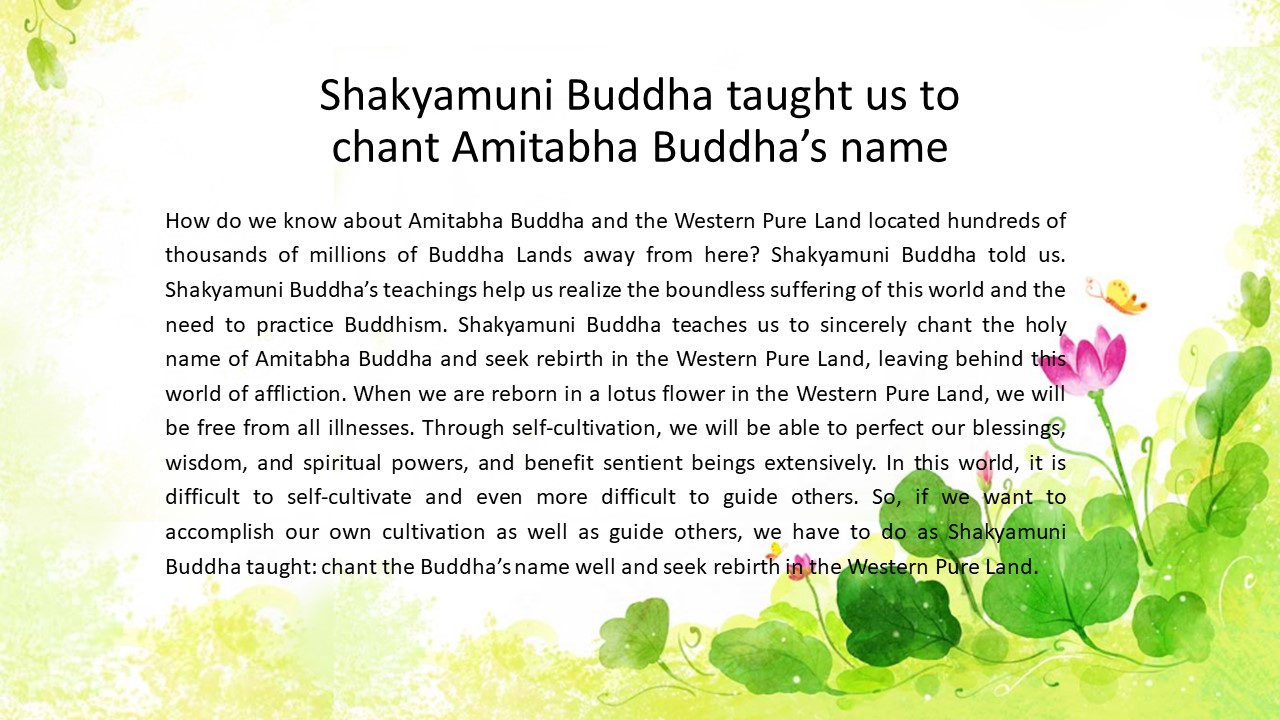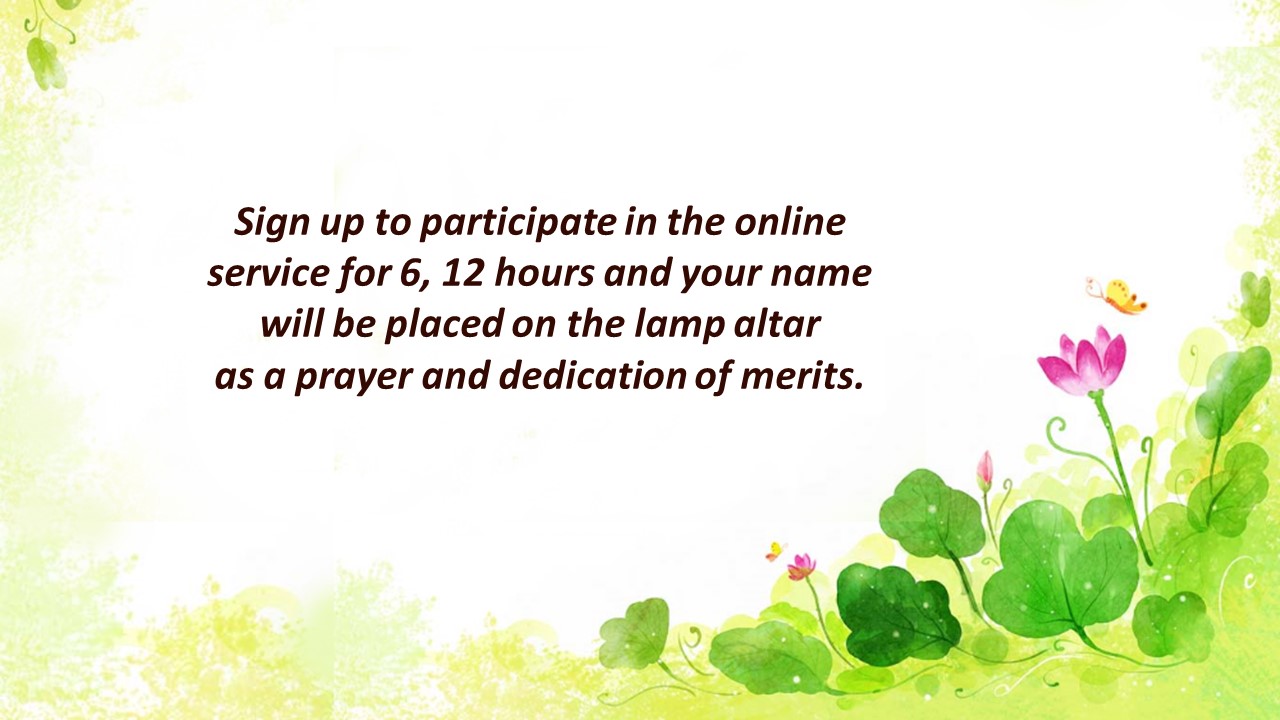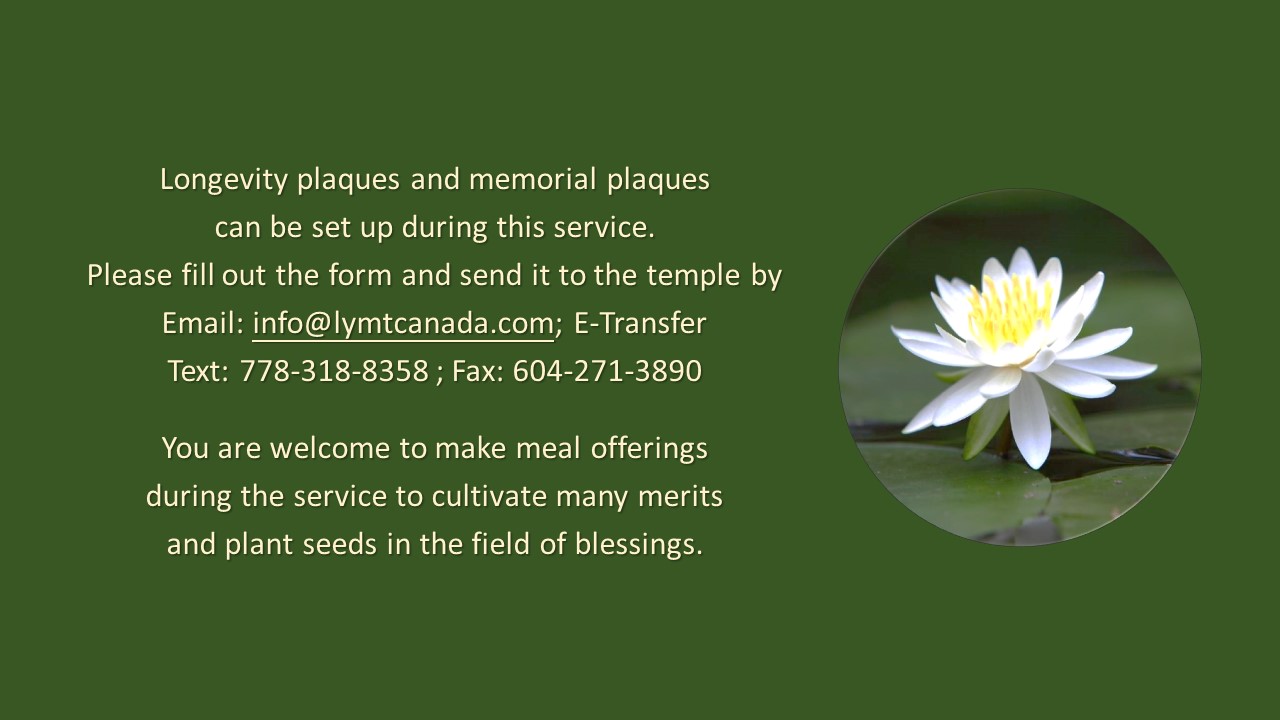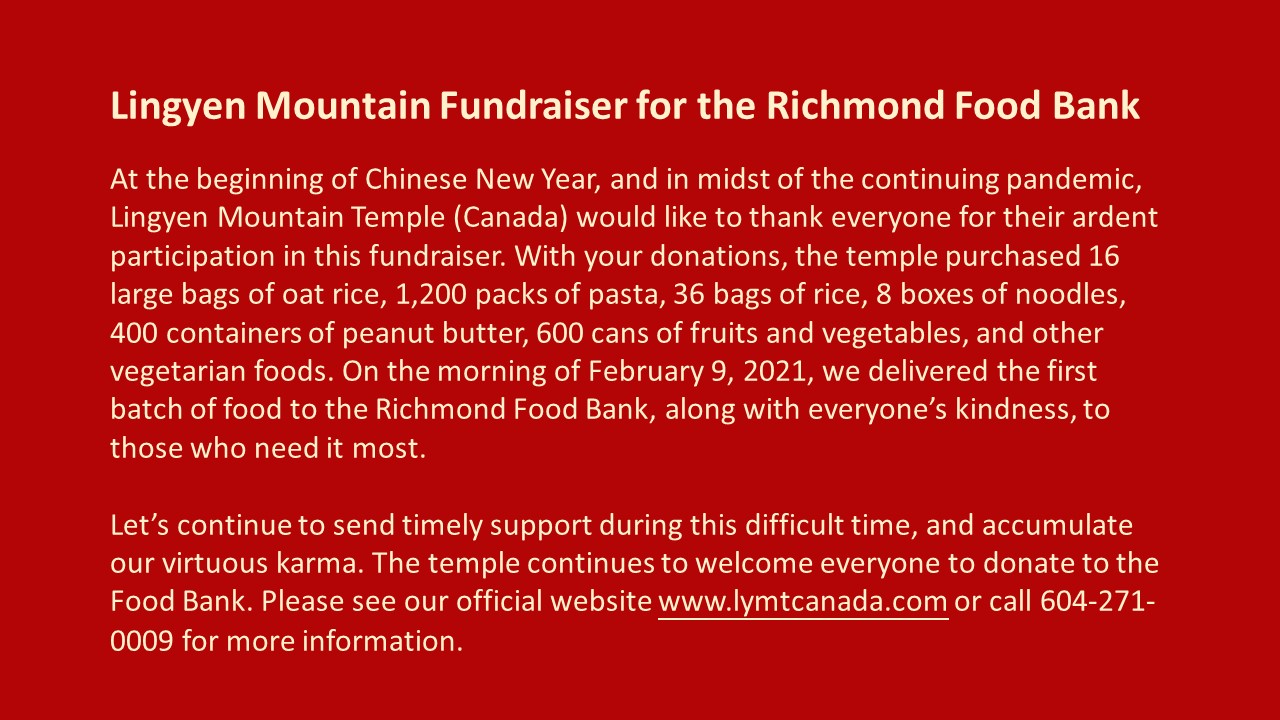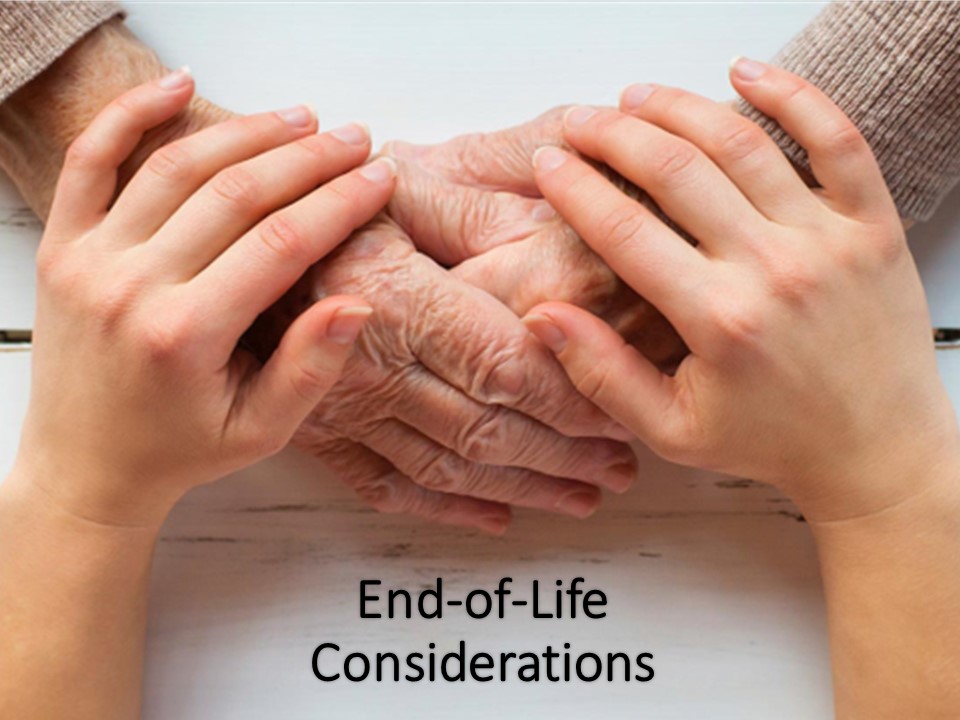
Introduction
Death is a natural part of life that every person will face at some point. It cannot be avoided. Nevertheless, many people experience depression and a sense of loss when they come across a death of a loved one. Therefore, we need to learn how to maintain a healthy mindset in facing and dealing with death. We have no way of predicting or preparing for accidental death, and can only deal with the results. However, for people who are about to die from an illness, end-of-life care is especially important. We need to provide appropriate guidance to remove their fears, encourage them to chant the Buddha’s name and generate right mindfulness, and teach the family how to help their loved one. By doing so, we can help the person pass away peacefully. The following is a discussion on the Buddhist perspective on how to manage one of the most important parts of our lives.
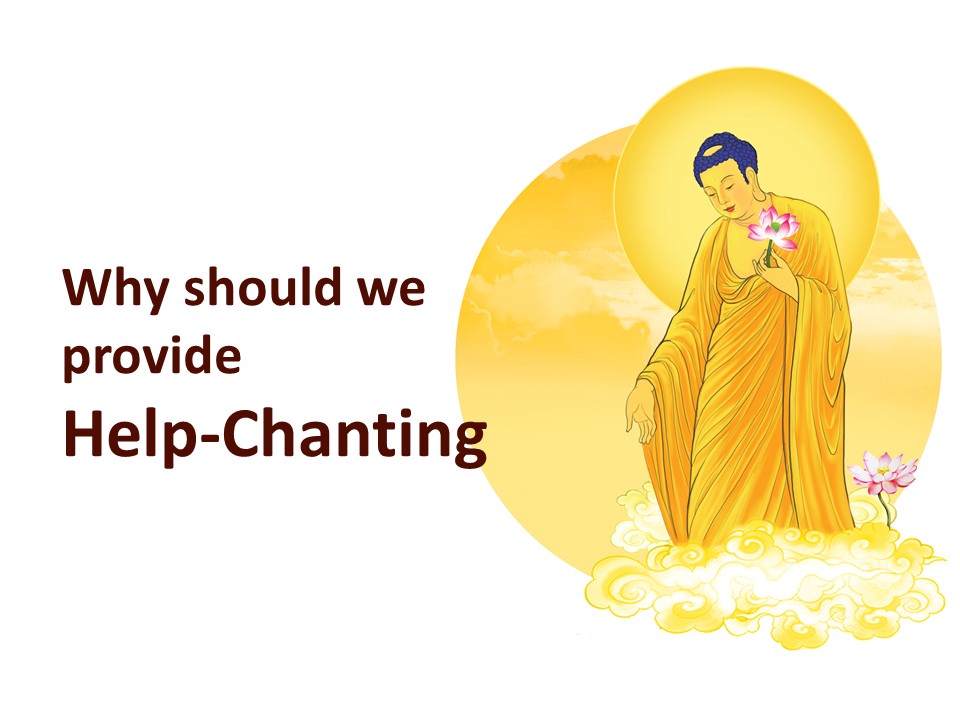
- Why should we provide Help-Chanting?
- Taking the right approach to Help-Chanting
In Buddhism, death is not the end of life; in fact, it is the beginning of a new stage in life. Apart from the physical body, everyone also has a spiritual nature—one which we cannot see, and is not subject to birth and death. Some call it the ‘soul’. When this stage of life ends, the physical body breaks down, and the soul leaves the body. Our deeds over past and present lifetimes generate karma which determines where we go in the next life. According to Buddhist sutras, within 49 days after death, the intermediate state of the soul will go along with three forces: significant karmic forces, habitual tendencies, and the thought at the moment of death. Of these three, most go along with the present thought at the moment of death.
Most people think that death occurs when breathing stops. Actually, even though they are not breathing, their Eighth Consciousness has not completely exited the body. Even though they cannot speak, they can still faintly hear and feel what is going on around them. They still hang on to the world. At this time, we need to assist them in creating good karma, and guide them with the sound of the Buddha’s name. Their spiritual nature remains lucid, and will follow the sound of the Buddha’s name to be reborn in the Buddha’s Land.
Help-Chanting is when people are asked to chant on someone else’s behalf when treatment attempts have been deemed futile, as they are about to die, or have already died. The meritorious virtues of chanting the Buddha’s name guide them along in the last moments in their lives, helping them let go of all attachments, be peaceful and at ease, and be reborn in the Pure Land. Help-chanting utilizes everyone’s chanting ‘thought-waves’ to kindle the mindfulness of the near-death person, helping them maintain this mindfulness that will combine with the virtuous thoughts in the Ten Directions of the Dharma Realm. They will go along with this virtuous mindfulness and be reborn by transformation in a lotus flower in the Pure Land. Therefore, Help-Chanting on behalf of others will help them accomplish their Pure Land practice. It will also teach us a strong and practical lesson in life.

- Why should we provide Help-Chanting?
- Learn about Amitabha’s vows in helping people be reborn in the Pure Land
In face of birth and death, the Pure Land method of chanting the Buddha’s name is the simplest, most extraordinary way to cope. The Pure Land method teaches us to single-mindedly chant Amitabha Buddha’s name with genuine faith and firm vows, so that we will bring forth right faith and mindfulness at the time of death and seek rebirth in the Pure Land. Special emphasis is placed on the strength of our vows to be reborn there, with the practitioner’s final thought being the deciding factor. This makes Help-Chanting especially important.
Help-chanting is when we sincerely chant Namo Amitabha Buddha. This is a Sanskrit name, with ‘Namo’ meaning coming back, taking refuge, and paying respect. Amitabha Buddha means infinite life and infinite light.
It is clearly stated in Amitabha Buddha’s 48 vows that, as long as we are genuinely sincere in chanting Amitabha Buddha’s name, even one to ten recitations will lead to rebirth in the Pure Land. Amitabha Buddha will come to take us there. This chanting must be done with the mind here and now—if we can sincerely chant the Buddha’s name with complete mindfulness, without letting the mind wander off, then ten recitations will take us there. If that is not possible, then we need to chant thousands, even tens of thousands of times, so that the strength of our faith, combined with the Buddha’s vows and our own diligence, will lead us to rebirth there.
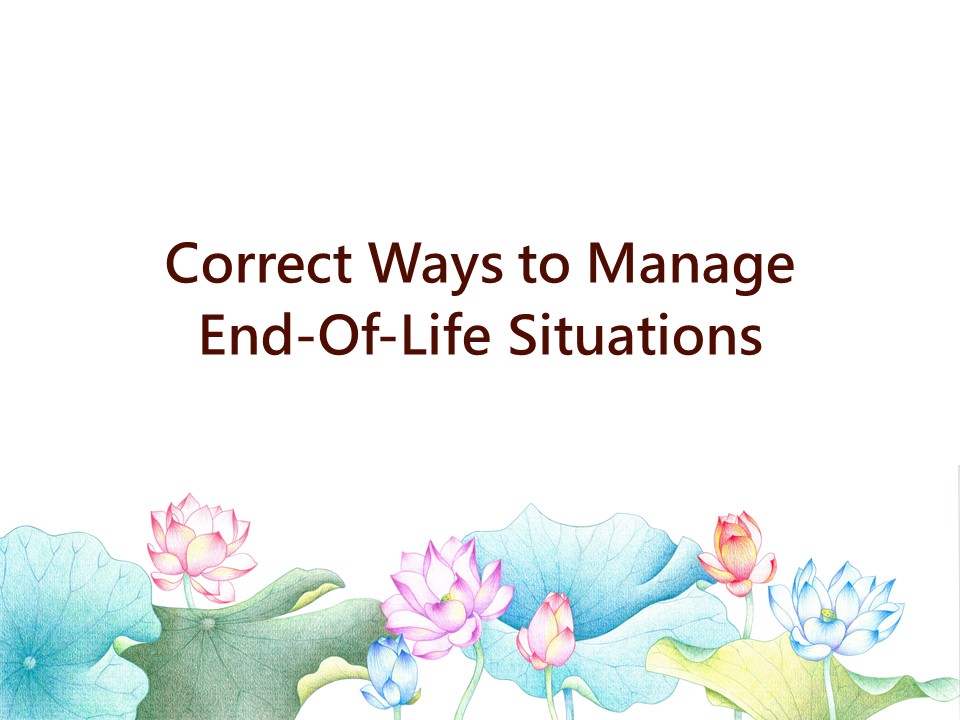
- Correct ways to manage end-of-life situations
The 13th Patriarch of the Pure Land School, Patriarch Yin Kuang, listed three main principles to follow when helping people at the end of their lives.
- Skillfully provide guidance and comfort to help them generate the right faith. Encourage them to let go of all attachments and single-mindedly chant the Buddha’s name. If they would like to give final instructions, have them communicate their wishes as soon as possible. Afterwards, they should put it aside, and only think about following the Buddha to be reborn in the Pure Land. With sincere chanting of the Buddha’s name, the Buddha will certainly compassionately come to personally take them to the Pure Land. Leaving behind this world of suffering to be born in the land of bliss is an extremely joyful event; they should feel a sense of happiness in this.
- Take turns to chant the Buddha’s name to assist in maintaining pure mindfulness. At this time, the dying person is mentally frail and cannot chant continuously for a long time. To receive the benefits of the chanting, he relies entirely on others. We should understand that by being willing to help others maintain pure mindfulness and be reborn in the Pure Land, we will also reap the benefits of others Help-Chanting on our behalf. Do not think that we should only do this to repay the kindness of our parents. Even Help-Chanting on behalf of a stranger will nurture our field of blessings and increase our virtuous roots. Helping one person be reborn in the Pure Land is helping one sentient being become a Buddha. Help-Chanting should be done in shifts, using only the hand chime, and chanting each syllable clearly and distinctly—not too fast nor too slow.
- Do not move the dying person’s body, or cry in front of him, to avoid interfering with his mindfulness. When the person is near death, it is the pivotal moment when his next path will be decided—whether it be a sage, human or ghost. We can only guide his consciousness with our chanting of the Buddha’s name. We must not bathe him, change his clothes, move his body, or cry in front of him. Leave him in whichever position he is in; do not move the body at all. Also, do not show your sadness or cry in front of him. At this time, he is not in control of his body. One slight movement can cause tremendous pain in the whole body. Pain causes anger, and he will lose his mindfulness of the Buddha. If he dies in a state of anger, he will most likely be reborn as a poisonous animal—how terrifying is that! If he sees people sad and crying, he will become emotional and lose his mindfulness of the Buddha as well. If he dies in an emotional state, he will not be able to liberate himself for lifetimes to come. At this time, the most beneficial thing to do is to single-mindedly chant the Buddha’s name. The most harmful thing to do would be to move the body and cry in front of him.
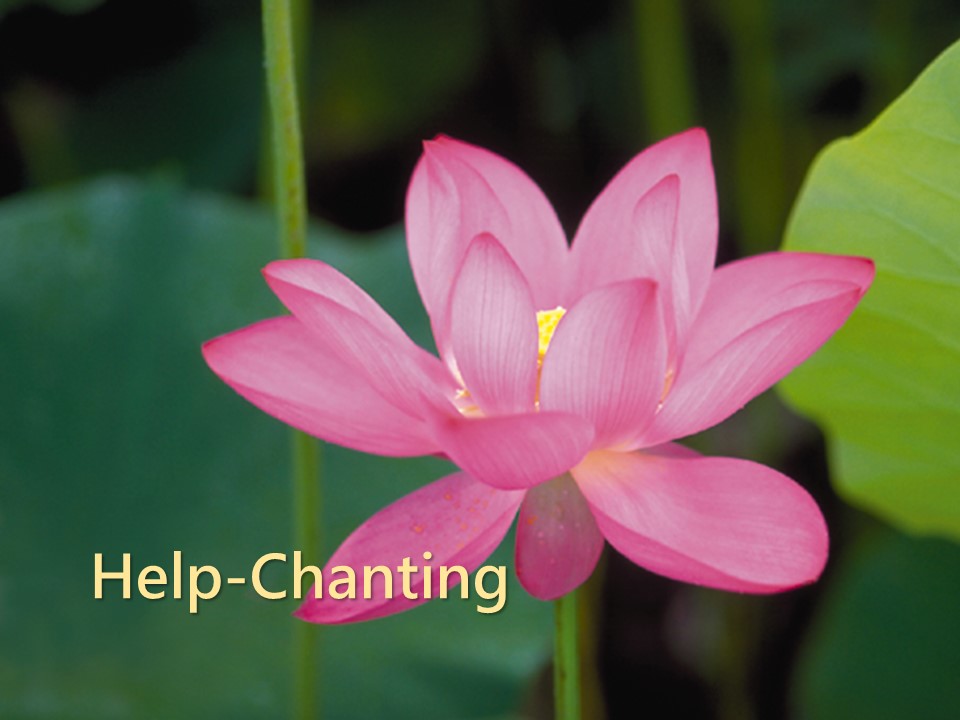
- End-of-Life Prayer
- Request Help-Chanting
- When the person is near death, the family can contact the temple ahead of time and obtain the chanting audio player, Dharani blanket, Buddha image, golden light sand, and Great Compassion water in preparation. They can also request Help-Chanting from the temple. The temple will confirm all information before making the necessary arrangements.
- Help-Chanting can be provided for people of all religions, races, nationalities, ages and genders. As long as the family agrees to cooperate and participate in the Help-Chanting process, anyone can request Help-Chanting. If the person is receiving treatment in a hospital, the family must inquire if Help-Chanting can be provided in the hospital for 8 hours, preferably in a private room. Once health care providers confirm the person has stopped breathing, Help-Chanting can be requested. The family can also consider taking their loved one home in advance to provide Help-Chanting there. If their loved one has been diagnosed with a communicable disease, Help-Chanting cannot be provided, but we will help the family deal with the death in all other ways we can.
- When the person near death is still lucid, the family can invite good advisors to provide the person with instructional guidance. The family can also frequently offer their care and encouragement to inspire their loved one’s faith and vow to be reborn in the Pure Land. Before the Help-Chanting volunteers arrive, the family should skillfully remind their loved one to let go of all attachments, single-mindedly chant the Buddha’s name and seek rebirth in the Pure Land—this is the greatest blessing. The family can also follow along with the audio player and begin Help-Chanting.
- On the deathbed, start by covering the person with the Dharani blanket, folding over the top to the front of the chest, revealing the head. Hang the image of Amitabha Buddha in front of the bed so that it is visible to the dying person. Turn on the chanting audio player and remind the person to silently recite the Buddha’s name. The Dharani blanket is also called the Rebirth blanket. When placed on the dying or dead person’s body, it will bring the Buddha’s protection and look nicer as well. However, do not become attached to the idea that this blanket is mandatory, and rebirth is impossible without it. There is no evidence to prove that. The most important thing is to provide Help-Chanting. Help-Chanting is what will help the person maintain Right Mindfulness in his faith, vows and practice.
- If the Help-Chanting is in a remote location that requires an hour or longer commute, or if it is in the middle of the night, and very few people can participate, the family should begin Help-Chanting on their own. If the Help-Chanting volunteers arrive late or cannot make it, this is due to the karmic hindrances of the dying person, and the family should not blame the volunteers.
- It is inappropriate to invite 2 or more Help-Chanting groups at the same time. Their chanting methods might differ, interfering with the effect and diminishing the significance of the Help-Chanting being provided. If different groups are participating, one group should be designated as the director of the Help-Chanting process. Other groups should work together in cooperation.
- After breathing stops, the consciousness has yet to depart from the body. When people are dying, they are still conscious. Under normal circumstances, Help-Chanting should be done on their behalf for 8 to 24 hours. Ask the leader of the Help-Chanting group, or the dying person’s friends and relatives, to assess the situation and provide appropriate guidance to the dying person. During appropriate times throughout the Help-Chanting process, they should guide and remind the dying person to bring forth his faith and vows to be reborn in the Pure Land.
- Do not rush to bathe, reposition or change the clothes of the deceased person. When Help-Chanting is complete, at least 8 hours after breathing has stopped, then we can bathe and change his clothes.
- Do not cry in front of the person. If family members cannot control their emotions, ask them to go somewhere else, and only come back after they have calmed down. Do not interfere with the mindfulness of the deceased person.
- Pull the Dharani blanket gently to cover the deceased person’s head, being careful not to touch the body.
- If death occurs in a hospital, do not immediately send the body to the freezer or inject preservatives.

- End-of-Life Prayer
- Guidelines for Help-Chanting
- Once the dying person is confirmed to have stopped breathing by medical personnel, the temple’s Help-Chanting volunteers can then be notified. Help-Chanting is provided for 8 hours after the time breathing stops. The sound of chanting should continue non-stop for 8 hours. Once 8 hours is complete, Help-Chanting will end. For example, if the Help-Chanting volunteers arrive 3 hours after breathing has stopped, then they will chant for 5 hours.
- Provide the detailed address of the Help-Chanting location, the Chinese and English names of the contact person and the deceased person, and the cell phone number of the contact person.
- The Help-Chanting volunteers can chant in shifts. This will prevent fatigue and ensure the chanting is continuous. The tone of the chanting should be not too high or too low, not too fast or too slow. That way, the deceased person can hear each word clearly and distinctly, and the Buddha’s name will enter his mind through his hearing.
- As for Dharma instruments, only the hand chime should be used. Only chant “Omitofo” (Amitabha Buddha), and not any other sutras. A chanting player can also be used to maintain a constant speed and rhythm.
- If there are objective environmental factors that cannot be overcome, we can play the chanting player or CD. Of course, it would be best if family and friends can personally and sincerely participate in the Help-Chanting.
- Once Help-Chanting is complete, we shall ensure the body has cooled down and the consciousness has exited as confirmation of death. Then we can bathe the body, change the clothes, and relocate the body.
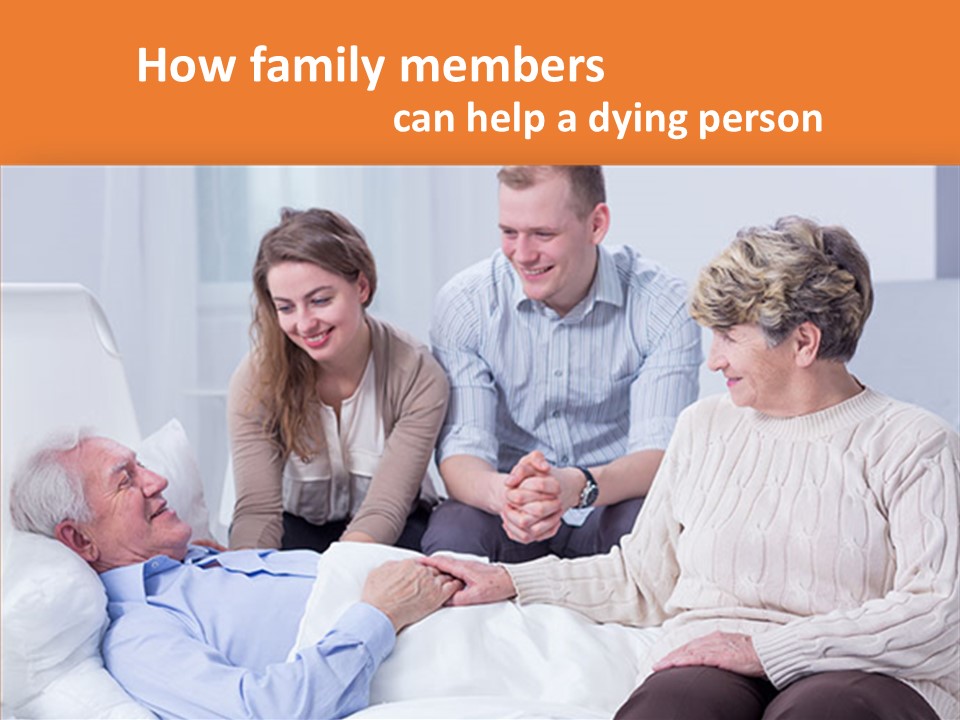
- How to help a family member who is dying
- Enable them to hear the Buddha’s name, which embodies merit and virtue that will nurture their virtuous roots. Over the course of future lifetimes, they will be able to encounter the Buddhadharma and be successful in their Buddhist practice.
- It is best if the whole family can adopt a vegetarian diet. By resolutely refraining from taking life, the family generates blessings on behalf of the dying person. Follow the methods explained in the Earth Store Sutra to cultivate blessings for the dying person, and describe to them what has been done. This will help solidify their confidence in their ability to be reborn in the Western Pure Land.
- Single-mindedly chant the Buddha’s name on behalf of the dying person to help them be reborn in the Western Pure Land. Chanting on the one hand, while on the other hand injecting stimulants and tonics, will only increase their pain and impede their rebirth in the Western Pure Land.
- If it is confirmed that the dying person’s illness is incurable and they wish to return to their own home for help-chanting, obtain permission for discharge from the hospital. Return home or to another quiet place and promptly begin chanting the Buddha’s name.
- To avoid interrupting the mindfulness of the dying person on the way home, continue interventions such as oxygen and intravenous lines necessary to maintain their life. However, if the dying person is properly mindful, the family may remove these interventions according to their condition.
- On the way home, gently remind the dying person to be mindful of the Buddha’s name, and begin help-chanting by their side.
- When there are no longer any signs of life, turn off the intravenous drip. After the help-chanting is complete, then remove the oxygen and intravenous lines.
- Exhort the dying person several times a day to be mindful of the Buddha’s name, but do not continue if they become unconscious. Instead, focus on helping them by chanting the Buddha’s name loudly.
- Assign one person from the family to coordinate the entire help-chanting process and prevent obstacles that would impede the dying person from truly benefiting from the help-chanting.
- Stay by the dying person’s side and chant the Buddha’s name. Sincerely pray for the support and protection of Buddhas and Bodhisattvas, and for them to take the dying person in the Western Pure Land. However, do not be directly in front of the dying person, as close relatives seeing each other at this time will likely lead to feelings of sorrow. Thoughts of emotional love interfere with proper mindfulness. It is best to sit by their side, or behind them.
- Do not chant the Buddha’s name in a sorrowful tone that resembles crying. When the dying person hears the sound, they will certainly give rise to distress and thoughts of loving attachment. If they lose their proper mindfulness, they will not be able to be reborn in the Western Pure Land.
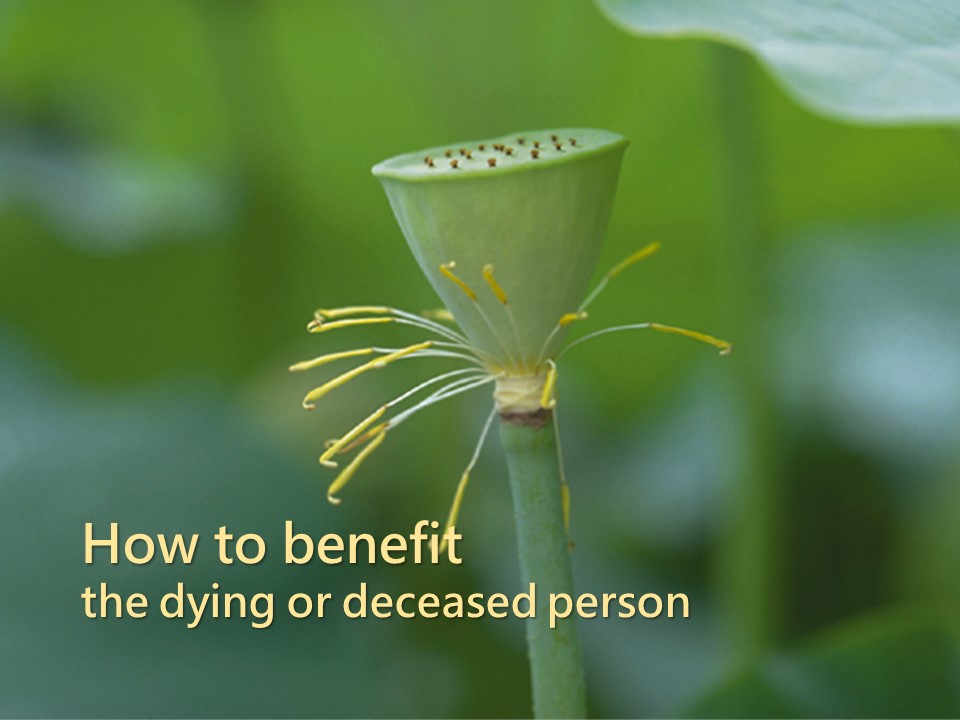
- How to benefit the dying or deceased person
- Setting up a plaque
- Setting up a Longevity Plaque or a Memorial Plaque for the dying person
- Setting up a Memorial Plaque for the deceased person
At the end of life, the four elements of the body disperse and people experience all kinds of suffering. Their energy is at their lowest, and it is as painful as a turtle losing its shell. They cannot control their body, and can only rely on others to chant the Buddha’s name on their behalf. At this time, the good and bad thoughts from the infinite past will continuously come forth. If their Right Mindfulness is not strong, and bad thoughts are rampant, on top of their parents, teachers, friends and foes of the past coming to disturb them, they will have trouble maintaining their mindfulness. By setting up a Longevity Plaque or a Memorial Plaque for their past friends and foes, praying and dedicating merits before the plaques, they will be blessed with the meritorious strength of the Three Treasures. Along with the Buddha’s support through everyone’s Help-Chanting, if they can bring forth faith and determination to be reborn in the Pure Land, Amitabha Buddha will compassionately come to take them there. If their life is this world has yet to end, they will recover from their illness.
After people’s breathing stops, their consciousness does not perish. It is simply transforming into another life form according to the person’s karma, thoughts and habits. Within 49 days (in some cases, it may take longer), they will be reborn in the Six Paths. This is known as transmigration in the Six Paths—heavens, humans, Asuras, hells, hungry ghosts, and animals. In this intermediate state, as their destination is yet to be decided, if their family can set up a memorial plaque on their behalf, chant the Buddha’s name and dedicate the merits to them, they can help the deceased person hear the Buddhadharma, sincerely repent, and reduce their karmic offenses. If they have yet to be reborn, they will be reborn in the Pure Land; if they have been reborn, they will advance in their Lotus Grade. If they cannot be reborn in the Western Pure Land, we pray for the Buddha’s protection to keep them away from suffering in the Lower Realms.
Within 49 days, or during Dharma Services, if we set up memorial plaques on behalf of the deceased, through the extraordinary merits of the assembly’s practice, they will receive many benefits. The temple is a pure place of practice, with Masters leading the assembly in group practice sessions from morning to night. Under the support of the Three Treasures, sentient beings will be able to experience Buddhist principles, let go of their attachments, resolve enmity, be free of suffering and enjoy happiness. The merits are truly inconceivable. If family members can personally participate in the group practice sessions, their deceased loved ones will benefit even more. This is because family members will naturally be even more sincere than others in their prayers, allowing their deceased loved ones to benefit even more from the merits of their practice. The family members themselves will reap the blessings from their practice as well.

- How to benefit the dying or deceased person
- Cultivating merits and virtues Cultivating merits and virtues on behalf of the dying person, or deceased person within 49 days, yields extraordinary benefits.
- Cultivating merits and virtues on behalf of the dying person:
- Cultivating merits on behalf of the deceased person:
First of all, we must stop killing living beings. Even more so, do not make animal sacrifices as offerings to ghosts and deities. If it is possible to encourage the person to be vegetarian and chant the Buddha’s name when he is seriously ill or dying, and encourage his family members to do the same, they would be creating the best supporting conditions. Think about it: The fear and suffering that you experience when you are seriously ill or dying is the same fear and suffering that animals feel when they are about to be killed. The animals die full of anger and distress; how could it be healthy to eat their meat? If people who are seriously ill eat meat, their illness will worsen and they will create hateful affinities with the living beings they have eaten. As The Ksitigarbha Sutra states: Give their favorite items, clothing, treasures, fields and houses as offerings to the Buddhas and Bodhisattvas, and sculpt statues, build temples, print sutras, offer lamps, and make offerings to the Three Treasures on behalf of the dying person. In addition, be vegetarian and do not kill. The dying person will receive the benefits through our dedication of these merits.
chanting the Buddha’s name, being vegetarian and not killing, upholding precepts, making offerings to the Three Treasures, etc.
For 49 days, if family members can try their best to be vegetarian, chant the Buddha’s name, and cultivate merits and virtues on behalf of their deceased loved ones, their loved ones will be able to eliminate their karmic offenses, increase their virtues and blessings, be reborn in the Western Pure Land, or be reborn in the heavens or humanly realm. If they have already been reborn in the Pure Land, their family’s efforts will help them advance in their Lotus Grade. The family’s blessings will also increase as a result. If family members do not chant the Buddha’s name and be vegetarian, and instead create negative karma by killing living beings, engaging in sexual misconduct, eating all kinds of meat and fish, drinking alcohol, etc., then even if their deceased family members originally had good karma, they will lose it and it will change to negative karma instead. If the deceased family members were originally burdened with negative karma, this negative karma will intensify.
During the funeral service, all offerings should be vegetarian. Making animal sacrifices will only increase the deceased person’s karmic offenses. For 49 days, family members should be fully vegetarian, and all food served at the funeral should be vegetarian as well. How to Prepare for Death states: The destiny of the deceased spirits is closely tied to their family members. Do not extravagantly waste money on burial objects and unnecessary rituals. Unnecessary expenses should be saved and instead used to give to the poor, print sutras and images, make offerings to the Sangha, liberate living beings (or print books that promote vegetarianism), or cultivate merits and virtues in the name of the deceased person.
During the mourning period, it is best if the family can uphold the Eight Precepts and Fasting, or the Five Precepts—no killing, no stealing, no sexual misconduct, no lying, and no intoxicants. It is best if they can participate in the temple’s seven-day chanting retreats, Water and Land Dharma Service, and Emperor Liang Repentance Service. They can set up plaques in memory of their loved ones. Sincerity is foremost in helping them transcend and receive the true benefits; the amount of money spent is less important. It is most important that the deceased person’s family and children personally participate in Dharma Services on behalf of their deceased loved ones, not simply ask Masters to recite sutras. If financial limitations prevent the family from participating in the services mentioned above, they can simply get together and chant the Buddha’s name—this will aid in the transcendence of their loved one as well. The important thing to remember is that the strength of the merits generated depends mainly on the family’s sincerity.
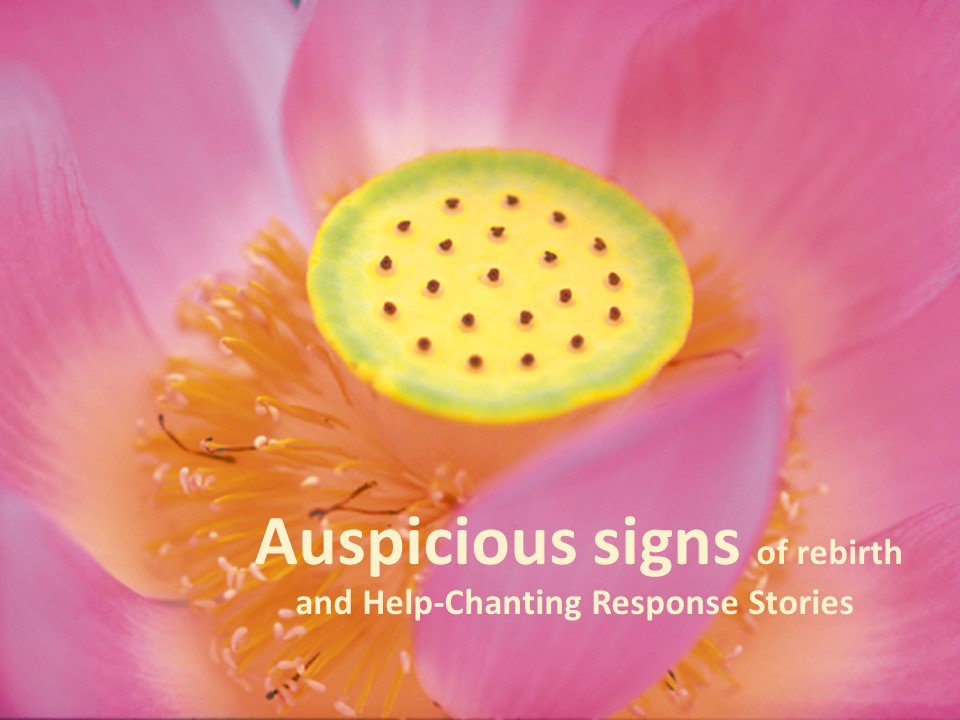
- Auspicious signs of rebirth and Help-Chanting Response Stories
For the most part, auspicious signs prove that someone has been reborn in the Pure Land. The sutras state that those who are reborn in the Pure Land show the following auspicious signs: Their mind is not confused, they know when they will leave this world, they do not lose their pure mindfulness, they clean themselves and change their clothes, they chant the Buddha’s name themselves, they sit upright with their palms together, their room is filled with unique fragrance, they have light shining on their body, heavenly music fills the air, and they speak verses to encourage those around them. Some people who have been reborn in the Pure Land look just as if they fell asleep, with rosy cheeks, calm and relaxed. Some look even better than when they were alive, smiling as they pass away. More than ten hours after death, even if their bodies have completely cooled down, they are still very soft and flexible. When changing their clothes, they are so flexible it feels as if they were still alive. Some people have many rays of the Buddha’s golden lights shine upon them, with rare fragrance filling the room and heavenly music filling the air. Sometimes Help-Chanting brings the Three Sages of the West to come and receive the person, or a lotus flower, or rays of light appear to receive the person. Sometimes the person even gets up and chants Amitabha Buddha. Some people know in advance when they are going to pass away and be reborn in the Pure Land.
A true Help-chanting story: Venerable Master Miao Lien once told us about a somewhat famous person in Hong Kong. Even though he was quite rich, he did not make offerings to the Three Treasures, and did not give to secular charities either. His old mother was a devoted and sincere Buddhist. Even though her son was rich, the old mother did not have money. She was only given a limited amount of money to use. When her son was about to die, he started to look just like a hungry ghost. Since his mother was a devout Buddhist, she went to the temple, knelt down and knocked her forehead onto the ground as she paid respect to the Masters. She begged them to provide Help-Chanting for her son. No one wanted to go, because her son never built good affinities with the Three Treasures. But his mother was a genuine cultivator, so everyone still agreed to go. Once they got there, the Masters were terrified at the sight of a living hungry ghost! Everyone started chanting desperately. They chanted non-stop for 7 or 8 hours, and he returned to his human appearance. Not only that, but he was also smiling as he lay there, as if he was sleeping.
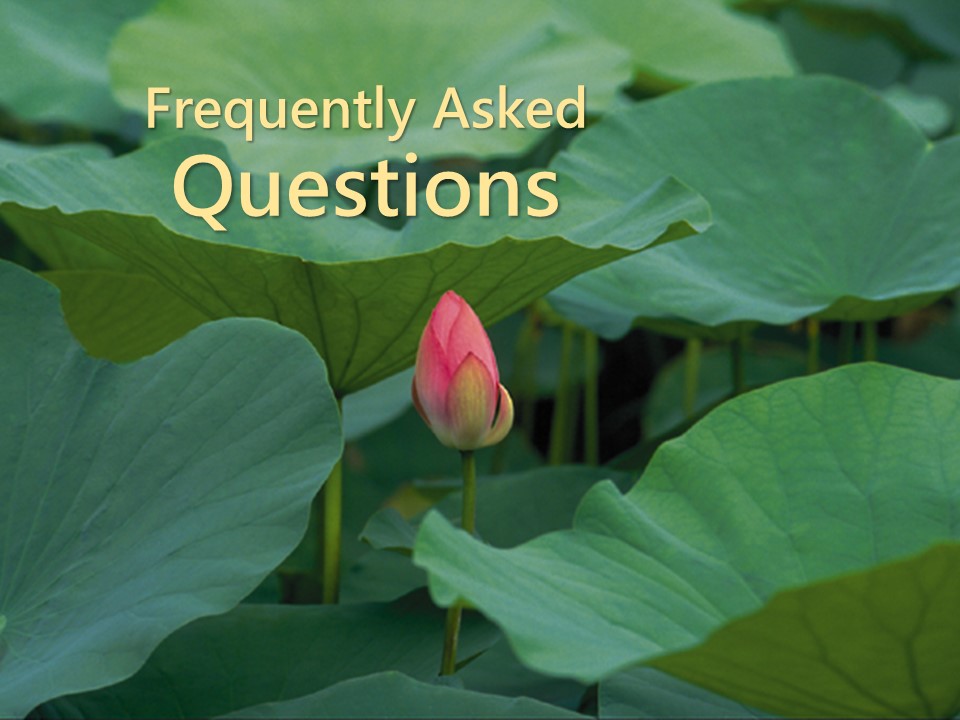
- Frequently Asked Questions
- What is the Buddhist perspective on organ donation?
Organ donation is being promoted in society nowadays. At the end of life, people need to chant the Buddha’s name single-mindedly in order to be reborn in the Pure Land. If their body is being cut open to harvest the organs, can they still maintain single-mindedness? Can they still be reborn in the Pure Land?
In regards to organ donation, let’s discuss two types of giving in Buddhism. There is giving of internal wealth and giving of external wealth. External wealth includes external possessions like houses and other personal property. Organ donation is a way to give internal wealth—it is truly a Bodhisattva practice. For example, Shariputra was asked to give his eyes when he first brought forth the Bodhi Mind. Whether or not we should donate our organs is a matter of perspective, not a matter of whether it will cause suffering or not. With an open perspective that believes giving our organs after death can save people’s lives, what is there to hang on to? Thinking this way, you will be happy to do it; you will be able to bear all suffering regardless of how painful it is. If you remain stubborn and hold on to antiquated ideas, you simply will not give anything away. You will be unwilling to part with your organs even after having given them away; you will feel the pain even if it is not painful. Let me give you an obvious example. You will be given incense-burns when you take the Bodhisattva Precepts. Before that, you watch other people doing it for the sake of eliminating karmic obstacles and accumulating blessings and wisdom, so you also want to do it. But to say receiving incense-burns is not painful is a lie. How could it not be painful? Nevertheless, you feel joyful in spite of the pain. Once you have brought forth the determination, you would be happy to donate your organs, not to mention receive incense burns. With a grand Bodhi Mind, you would be willing to donate one of your eyes to a blind person so that both of you will be able to see. Wouldn’t that be nice? If you are reluctant to donate even your external property, how could you be willing to give away your internal property? People nowadays are unwilling to give away even an eyebrow hair, let alone their eyes. So, it is entirely a matter of perspective; it is not a matter of whether or not you will be reborn in the Western Pure Land. Do not assume that everyone will become angry the moment he or she feels pain. If you become angry upon feeling pain, then do not give. If you make the Bodhi vow to save others and you can endure the pain, then go ahead and donate your organs. There is no hard and fast rule that you must follow. You do it if you are willing and happy; if you do not feel happy about it, it is alright if you decide not to do it. The Buddhadharma says that merits and virtues from any deed can be dedicated toward rebirth in the Western Pure Land. If you do myriad deeds joyfully and transfer the merits to the Western Pure Land, not only will your rebirth there be unhindered, but also enhanced by the merits and virtues you gained! It all depends on whether you are determined to do so or not.
If I decide to donate my organs but the recipient, who survives after receiving my organs, creates negative karma thereafter, what is the point of donating my organs?
You should not say that. When a person is seriously ill and needs help, is it not a great deed that you happen to have a good organ available to replace the failing one? The number one task of a Bodhisattva is to save people. If the person who is saved creates negative karma, it is he or she who is responsible for the consequences. Your determination to save others will still help you accomplish your Bodhisattva Way.
Generally speaking, people’s consciousness stays with them within eight hours of their death and the body should not be disturbed. Can organ donation be done during this time?
Timing does not matter if the person is willing to donate the organ.
From a religious perspective, what is the Buddhist take on bone marrow donation?
You should, of course, do whatever is beneficial to others.

- Frequently Asked Questions
- What is the Buddhist perspective on euthanasia?
There are people in society nowadays who advocate for euthanasia. Many countries allow it. What is the Buddhist perspective on euthanasia?
Euthanasia is performed because when people’s suffering reaches an extreme, they desperately want to end their suffering. In fact, euthanasia does not truly put an end to their suffering; it simply puts an end to their life. The physical body stops suffering, but actually, their suffering has not ended. They still have to continue revolving in the cycle of transmigration, and endure the results of their karma. Everyone living in this world experiences suffering, and there is a corresponding cause behind every effect. Euthanasia is not allowed according to Buddhist precepts. The precepts tell us that killing by ourselves, instructing others to kill, or even rejoicing at the sight of others being killed, all create the karma of killing. All acts of killing, including suicide, are forms of negative karma prohibited by the Buddha. From the perspective of transmigration, our suffering is not limited to this life. It originates from karmic forces created in the past, and we must eventually endure it—no one can suffer in our place. The karma we created in the past leads to the suffering of illness in this life. If we create new karma by performing euthanasia, we must endure the corresponding retribution in the future.
Even if we decide to end someone’s life out of compassion, unable to bear the sight of people suffering, this does not mean that we have resolved their suffering—they cannot avoid the consequences of their karma. They will still have to endure the suffering in their next life, or future lives. Death does not solve the root of the problem, and may even bring them more suffering in the future. That is why Buddhism teaches us to engage in repentance. Why have they been faced with such retribution? We must repent for the negative karma we have created in the past that has led to our physical pain and suffering in this life. We must also make vows—vow to be reborn in the Pure Land. When people are in great physical pain, we should guide them with Buddhist teachings so that they will bring forth the vow to be reborn in the Pure Land.

- Frequently Asked Questions
- What is the Buddhist perspective on abortion?
Some people have an abortion because they do not want to have a baby. Some people find out that their baby has serious health problems and decide to have an abortion. Others do so because they cannot financially support a child. Despite all these reasons, we must be aware of the seriousness of this issue.
People have asked, “Nowadays, abortions are frequently performed. Are the babies’ spirits going to find trouble with the parents?” If the babies’ spirits are virtuous and have good affinity with you, then there should be no problem after they depart. However, if they are not virtuous, they will not leave you alone. If they linger around you, they will not give you an easy time! But regardless if they give you trouble or not, having an abortion is a form of killing that must not be done! Exercising great compassion in Buddhism starts with not killing living beings. They came to be reborn; therefore, having an abortion is killing living beings. All intentional abortions are forms of killing, and are a violation of the precept against killing. Even though secular laws might allow it, people who support it and permit it have committed unwholesome speech, because even “praising the act of killing” is an offense.
There was once a lady who had an abortion, and her aborted baby’s spirit came to find her. Her mind was in a state of turmoil. She told the baby that she would help him transcend, but he did not want to. He said, “I don’t want to transcend to some other place. I came to be reborn here, and you killed me. Now I will take your life!” How harsh is that! This is like enemies in the secular world who say, “I must beat you to death! I must kill you!” What can you do when you encounter such an enemy? Another lady did not have the baby’s spirit come to find her, but her health deteriorated because of her abortion, with constant vaginal bleeding. How troublesome is that! She also came to find a Master to help her repent. With karmic obstacles already being created, the Master can help you with repenting and praying, but you must chant Guan Yin Bodhisattva yourself, and pray that the Bodhisattva will compassionately relieve your suffering.
In the past, people believed that more children and grandchildren meant more blessings, so they had many children. Nowadays, having one child is good enough, two children is just right, and three children is too many, so people do not want to have many children. If they get pregnant, they simply have an abortion. Having an abortion is killing—parents killing their children. National laws around the world nowadays support having fewer children. In fact, to have fewer children, we should reduce our desires—reduce our sexual desires. If we indulge in our sexual desires, how could we not have children? If we have a boiling pot of water and we do not eliminate the heat source, and instead keep intensifying the heat, how can we expect the water to stop boiling? The world is facing the problem of overpopulation, and the root solution is to reduce our desires. Young people who are single, and are wise enough to learn about Buddhism, should maintain their physical purity. If they decide to get married, they must not have abortions. Otherwise, they would be killing their children.
Nevertheless, once people are past the childbearing age, they should refrain from sexual conduct. People in the past refrained from sexual conduct because their children were grown up, and they were in their forties or fifties. Refraining from sexual conduct helped them stay healthy, so married couples slept on separate beds. Nowadays, people only know that they do not want to have children, but they do not think of refraining from sexual conduct. The Buddha knows that sentient beings have heavy sexual desires, and offered many ways to deal with this fundamental karmic obstacle. We are full of greed, anger, and ignorance, so the Buddha taught us about precepts, concentration, and wisdom—the practice of which targets our greed, anger and ignorance. Within the mind, we have greed, anger, and ignorance; in our actions, we commit killing, stealing, and sexual conduct. The most expedient and complete way of eliminating greed, anger, and ignorance is to not only chant the Buddha’s name, but also to chant Guan Yin Bodhisattva’s name. Why are there many people who chant the Buddha’s name, but not all of them are reborn in the Pure Land? This is also the effect of negative karma! We as Buddhists should awake to the importance of reducing desires. Only by reducing desires can we be liberated from the cycle of birth and death. Having abortions only leads to health problems and possible disturbance from the baby’s spirit. Reducing sexual desires and maintaining our purity are the foundation to ending the cycle of birth and death.

- Frequently Asked Questions
- What is the Buddhist view on suicide?
Nowadays, people are often stressed when faced with challenges in their work, education, family, relationships, and health. Without proper means to channel their emotions, it is possible for them to have suicidal thoughts, leading to irreversible results. People who commit suicide often think that death will lead to liberation, and put an end to all their suffering. However, from the Buddhist perspective of cause and effect, committing suicide comes with serious karmic consequences. It does not lead to true liberation because suffering does not disappear with death; in fact, it may even carry on to the next lifetime. Buddhist teachings say that true liberation involves dying peacefully and being reborn in a good realm.
Venerable Master Miao Lien once said, “As soon as they experience some difficulties, people often say, ‘Why don’t I just die sooner?’ Is death going to lead to happiness and liberation? If your karmic retribution has not ended, you might die and go to hell—that is even worse! In the Avici Hells, you go through ten thousand deaths and rebirths within one day and night. You die and are reborn again, reborn and die again. Because of the extreme severity of your negative karma, the karmic consequences are inconceivable, and the suffering is extreme. When the suffering reaches an extreme and you die, the karmic winds blow and you come back alive again to endure more suffering. The suffering continues until your karma is exhausted. The strength of karmic retributions is truly terrifying!”
Sentient beings go along with their good and bad karma created over past lifetimes, and continually undergo births and deaths while transmigrating in the Six Paths, as heavenly beings, humans, Asuras, hungry ghosts, animals, and hell beings. Before their death, people who commit suicide will have planted many negative seeds in their Eighth Consciousness, and will go along with their negative karma to be reborn in the Three Lower Realms (as hungry ghosts, animals and hell beings) where it is difficult to liberate themselves and be reborn as a human being again. After their death, people who commit suicide continue to suffer tremendous conscious pain. Therefore, it is best for their relatives or friends to set up a Memorial Plaque in their name, recite sutras and chant the Buddha’s name, and dedicate the merits so that their suffering will be reduced.
When someone is having suicidal thoughts, friends and relatives should offer their concern and keep them company as appropriate. You can guide them using Buddhist principles, so that they will have the right mindset in facing their difficulties. Gradually, encourage them to engage in repentance and show them different ways to transform their afflictions and karmic hindrances. Keep them company as they go through this low point in their lives, and help them learn to respect their lives, and respect themselves.
“It is difficult to be born as a human being; it is rare to encounter Buddhist teachings.” Since we have been lucky enough to be born as human beings, we should take advantage of this opportunity to cultivate our bodies and minds according to the Buddhadharma. When Buddhist disciples face challenges, we should not easily give up on our lives. Instead, we should find ways to cope with difficult situations. Committing suicide only shows our ignorance about the meaning of life. In the face of adversity and setbacks, as long as we have faith in the Buddhadharma, and repent for all the negative karma we created in past lives, our circumstances will change for the better. This is the most valuable aspect of our human lives.
-
Introduction
- Why should we provide Help-Chanting?
- Taking the right approach to Help-Chanting
- Learn about Amitabha’s vows in helping people be reborn in the Pure Land
- Correct ways to manage end-of-life situations
- End-of-Life Prayer
- How to help a family member who is dying
- How to benefit the dying or deceased person
- Auspicious signs of rebirth and Help-Chanting Response Stories
- Frequently Asked Questions

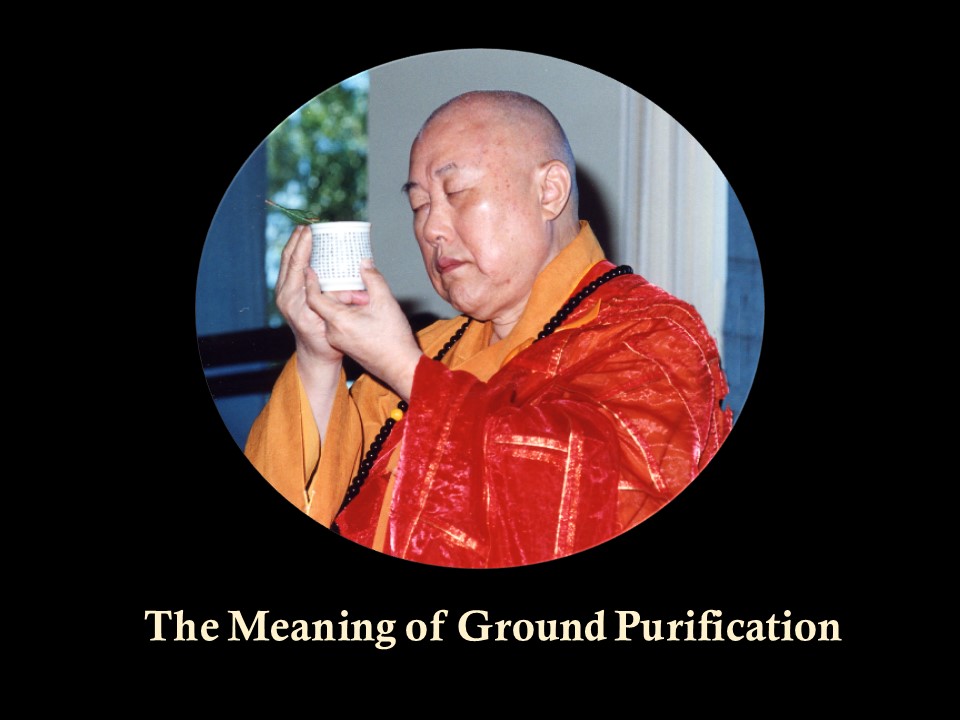
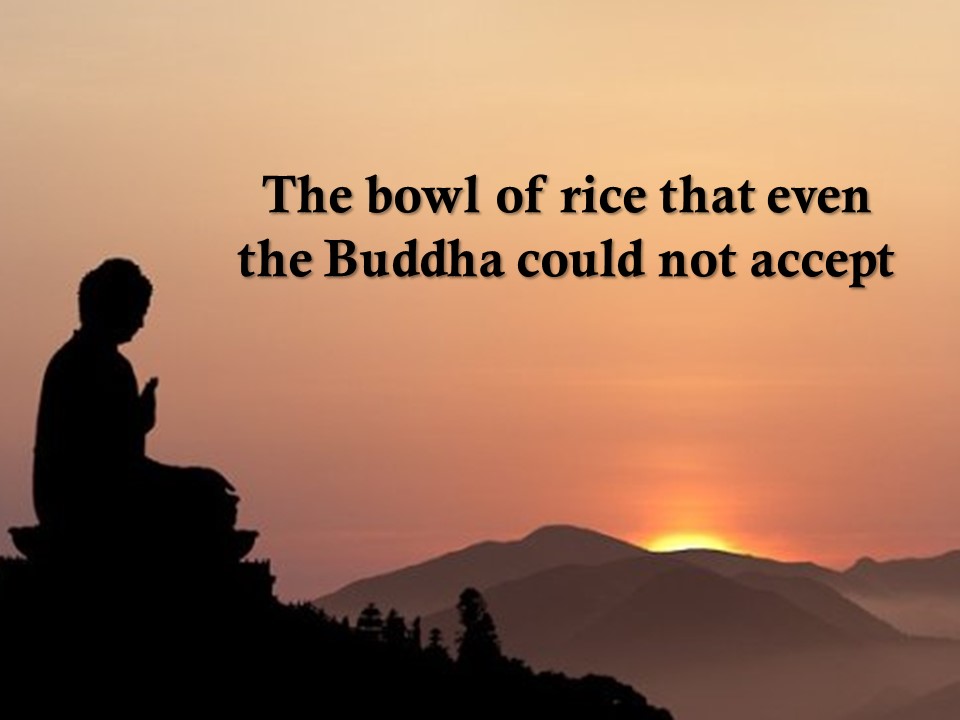
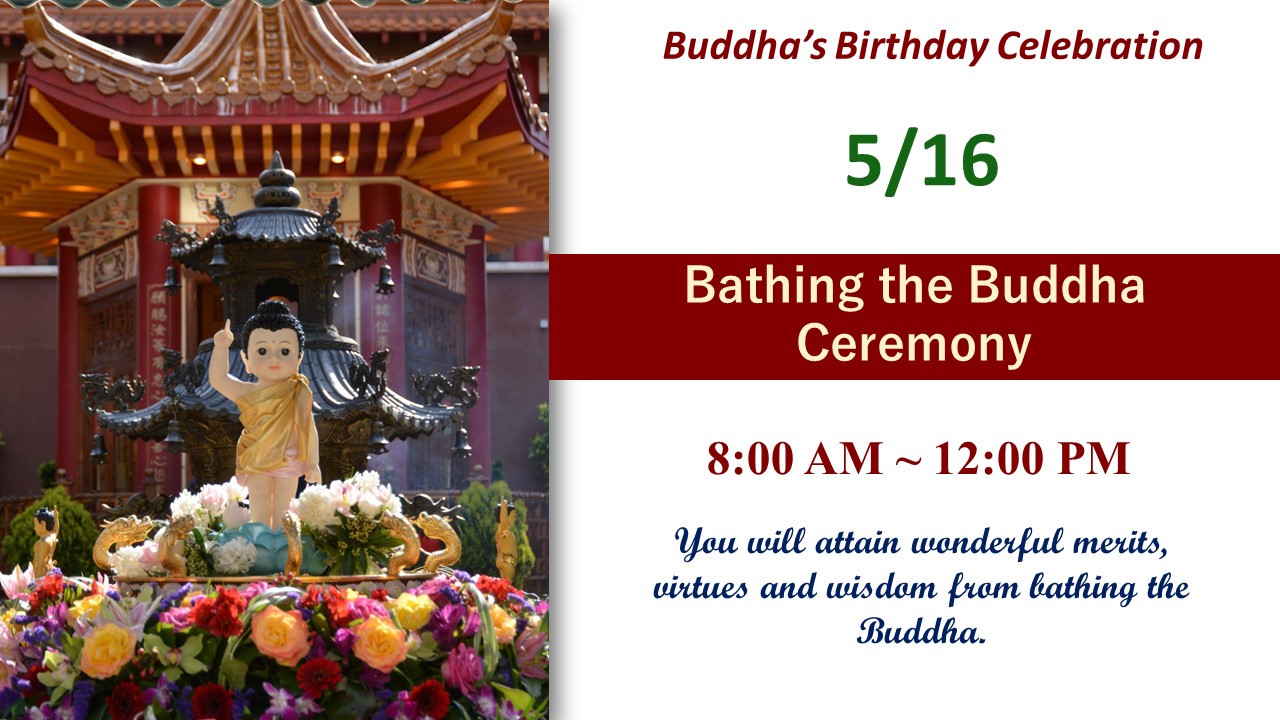
 (Please call us at 604-271-0009 before transfer)
(Please call us at 604-271-0009 before transfer)